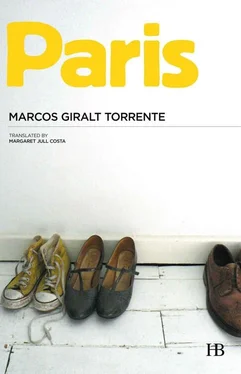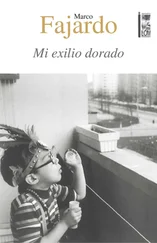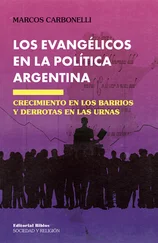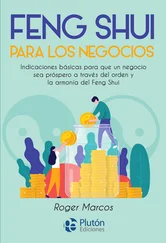Marcos Giralt Torrente - Paris
Здесь есть возможность читать онлайн «Marcos Giralt Torrente - Paris» весь текст электронной книги совершенно бесплатно (целиком полную версию без сокращений). В некоторых случаях можно слушать аудио, скачать через торрент в формате fb2 и присутствует краткое содержание. Год выпуска: 2014, ISBN: 2014, Издательство: Hispabooks, Жанр: Современная проза, на английском языке. Описание произведения, (предисловие) а так же отзывы посетителей доступны на портале библиотеки ЛибКат.
- Название:Paris
- Автор:
- Издательство:Hispabooks
- Жанр:
- Год:2014
- ISBN:9788494228452
- Рейтинг книги:5 / 5. Голосов: 1
-
Избранное:Добавить в избранное
- Отзывы:
-
Ваша оценка:
- 100
- 1
- 2
- 3
- 4
- 5
Paris: краткое содержание, описание и аннотация
Предлагаем к чтению аннотацию, описание, краткое содержание или предисловие (зависит от того, что написал сам автор книги «Paris»). Если вы не нашли необходимую информацию о книге — напишите в комментариях, мы постараемся отыскать её.
Paris — читать онлайн бесплатно полную книгу (весь текст) целиком
Ниже представлен текст книги, разбитый по страницам. Система сохранения места последней прочитанной страницы, позволяет с удобством читать онлайн бесплатно книгу «Paris», без необходимости каждый раз заново искать на чём Вы остановились. Поставьте закладку, и сможете в любой момент перейти на страницу, на которой закончили чтение.
Интервал:
Закладка:
XII
There’s no gleam now in my mother’s eyes, they’re veiled, inexpressive; they communicate nothing. She opens them and looks at me, but there’s nothing in that look. Her eyes tell me nothing. It isn’t like it was before, when although she hardly spoke and rarely talked about her feelings, I could at least sense what was going on inside her.
I no longer talk to my mother, it’s impossible. I think about her, but I hardly see her. What’s to be done when we still have questions to ask, when we have not yet run out of questions, and when the person of whom we’d like to ask those questions, with whom we’d like to continue talking, isn’t there to answer us, can’t speak, and has no idea that we’re counting on her? My mother is there, but she doesn’t say anything — or nothing that makes any sense — she doesn’t answer, she isn’t her. Her body is there, you can touch her, she hasn’t really changed, apart from getting a little thinner, but she’s a body without voice or memory, a body that doesn’t recognize anyone and has neither past nor future. Something that neither she nor I foresaw has swooped down on her body and torn it apart forever, even though it still exists and can go on existing. Sometimes, like now, I think that since she clearly isn’t her any more, nothing binds me to that empty body, which moves and speaks but doesn’t feel, or whose feelings are distorted, and at other times I resist losing her; on those occasions, I take her hand and try to make her recognize me, to rediscover some trace of the person she was. Sometimes when I visit, I spend hours looking at her, then I leave and don’t come back for weeks, because I can’t bear seeing her like that. I prefer my memory of her to a present in which she has no voice, I prefer to let her grow inside my memory rather than accept this alien, jarring present. And yet I can’t help thinking about her still; not like with my father, who breathes and speaks and doubtless still recognizes people, but I don’t think about him, I don’t know or care what happened to him, I don’t care about his past, about his future — he simply disappeared, as if he never was. I don’t want to see him, I wouldn’t know what to say. There’s a strange similarity, though, the two of them equal at last — my mother, one of the living dead, and my living but voiceless father, who doesn’t come to see me, doesn’t speak, and for whom I don’t wait. One, forever silent; the other, never missed, never loved. The two of them ultimately incapable of telling the story, of sharing the past with me. Who would have thought it after that trip to Toledo, when my father had left prison behind him and grown closer to us, or so it seemed? Not my mother or myself. I only have myself now, I only have myself to turn to if I am to reconstruct those months, only I think about them now, only I keep them in my mind. Aunt Delfina’s no use. She doesn’t know, she wasn’t there, she didn’t see. Besides, she isn’t my mother and I’m not her son, she didn’t choose me. She thinks about other things, she lives a life apart, she protects herself. Memory hurts, and for her, I am that memory, I remind her of my mother, I represent her.
I no longer speak to my mother, she can’t tell me her feelings, she can’t tell me if she believed what my father said, if what lay behind the gleam I saw in her eyes that evening driving back from Toledo was real and survived the days that followed, or if there was a glimmer of distrust inside her. I think about her, and it seems to me impossible that the memory of those days has ceased to belong to her. I’d like to see her again as she was then, as she was when I used to come home from school and everything seemed to be going well. I’d like to hear it from her, I’d like her to still be able to tell me what was going on in her head when my father started to arrive home punctually, when there were no more nasty shocks, when there was no need to worry and everything appeared to be under control and going according to plan, as it used to be when it was just the two of us. I’d like to know what she thinks of that period of her life, now that time has passed and it no longer matters if the cheerful, relaxed face she used to put on faithfully reflected what was going on inside her.
What I remember is really very little and of no importance, and hardly representative. I was always looking in from the outside, without feeling or being involved. Each considerate or affectionate gesture from my father during those months, each day that he came home from work with some new suggestion for how we should spend the evening, each regularity, each description of what he’d done during the day had little impact on me, failed to satisfy any previous wish of mine. Unlike my mother, I had no great expectations of him, I didn’t need him. It’s true that those months brought changes — we were less alone, and the days were not as long as when we only had each other to seek out or avoid around the apartment. Life was a bit more agitated, more novel. We often went out to dinner or to the movies or on trips, and my mother slightly relaxed her emphasis on discipline and orderliness. Even so, I didn’t see this as an improvement, which would have been the normal response, but the truth is that I always saw this period as an exception, not so much because I sensed it wouldn’t last as because I didn’t have time to incorporate it into my life. I found my father just as strange as I had when he first arrived. His initial furtive behavior had vanished; he not only appeared to do his best to please my mother, he made a considerable effort with me, as well. He still never mentioned his time in prison, but as that episode moved farther off, he adopted a more easygoing attitude and began to ask me about my classes and tried to establish an alliance with me, sustained either by the joking comments he made whenever we were alone or by little ironic remarks aimed at my mother in her presence, with me in the role of knowing accomplice. His former caution and reserve remained palpable, however, in the fact that he never suggested doing anything that did not include my mother. If for some reason we spent too much time without her, if conversation lagged or his jokes began to fall flat, he would become nervous and, as soon as he could, leave the room in which we had happened to coincide.
Seen from my current perspective, I think the problem was that he found my presence troubling. It wasn’t just that he didn’t know how to talk to me, although obviously the two years we’d been apart didn’t help, and although my mother used to show him current photos of me every time she went to visit him in prison, it must still have been a shock meeting me again. Suddenly, nothing of what he remembered was of any use. I had grown and he had to adapt, to alter his habits. On the other hand, it wouldn’t be fair to lay all the blame for his difficulty in establishing an easy relationship with me on that failure to adjust. I don’t honestly think he would have changed over time. It went deeper than that. It was partly that he didn’t know how to talk to me, but also that he hadn’t learned how to include me, that in the fragile equilibrium of duties and desires that dictated his relationship with us, he had not reserved a definite place for me. I was there, and he had no option but to accept my presence, but I was not important, nothing that he did, he did for me. The performance he put on, if performance it was, was purely for my mother’s benefit. Any regrets or debts, if there were any, were owed to my mother. I didn’t count. He wasn’t living with us because of me, I wasn’t the one holding him there. My mother had her own, intrinsic value, I did not. I was merely an addition to her; in his eyes, I was more an observer than an interlocutor or a victim. I was a bothersome presence, a witness he did not wish to have, one who could testify to any neglect or lack of love.
Читать дальшеИнтервал:
Закладка:
Похожие книги на «Paris»
Представляем Вашему вниманию похожие книги на «Paris» списком для выбора. Мы отобрали схожую по названию и смыслу литературу в надежде предоставить читателям больше вариантов отыскать новые, интересные, ещё непрочитанные произведения.
Обсуждение, отзывы о книге «Paris» и просто собственные мнения читателей. Оставьте ваши комментарии, напишите, что Вы думаете о произведении, его смысле или главных героях. Укажите что конкретно понравилось, а что нет, и почему Вы так считаете.












